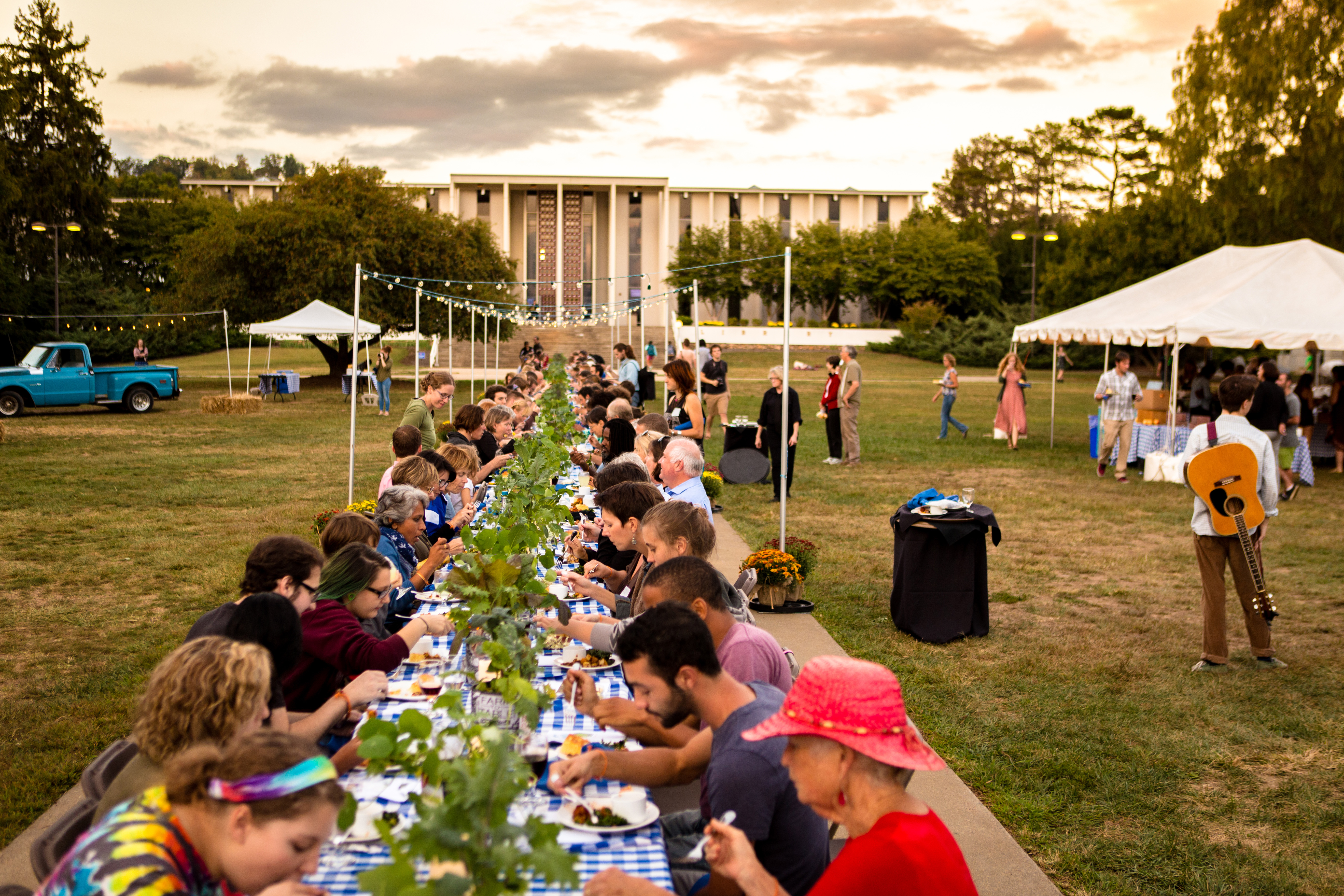
Why Economics?
We ask the big questions: How long does it take for a city’s investment in renewable energy to pay off? Is it less expensive to eat locally-produced food? How does the NBA determine ticket prices? From social issues to the business world, economics touches almost all aspects of our lives, and these are just a few real-world topics our students have researched. As North Carolina’s public liberal arts university, UNC Asheville offers unique opportunities to economics majors, including small, collaborative classes, faculty mentorship, and the chance to apply economics to contemporary concerns, like the environment, human diversity, and globalization.
What You’ll Learn
Within the general major in economics, students can focus on their interests in areas such as environmental economics, international economics, monetary economics and finance, and beyond.
All economics majors undertake a research project, and many graduates use this research as a stepping stone to graduate school or a career in a variety of fields, including finance, small business, education, the nonprofit sector, government, and more.

Who We Are
UNC Asheville is an excellent place to explore and inform your interest in sociology and anthropology. In our department you’ll find a diverse and interdisciplinary group of faculty who have carried out research on five continents and who are dedicated to helping students find ways to understand and engage with the world’s complexities. We believe our disciplines are intimately related, yet distinct, each involved in documenting and understanding the varieties of human experience.
What You'll Learn
Cultural anthropology is one of the most international of all the social sciences. A diverse but comprehensive discipline, anthropology investigates the social and cultural life of human beings in all times and all places. A concentration in anthropology provides students with an appreciation of other ways of life, different systems of belief and knowledge, and perhaps most importantly, a better understanding of the world in which they live. Students majoring in sociology are prepared for careers in social work, criminal justice, non-profit agencies, business and government as well as graduate study in sociology, anthropology, criminology, social work, law and various other fields.

Who We Are
UNC Asheville is an excellent place to explore and inform your interest in sociology and anthropology. In our department you’ll find a diverse and interdisciplinary group of faculty who have carried out research on five continents and who are dedicated to helping students find ways to understand and engage with the world’s complexities. We believe our disciplines are intimately related, yet distinct, each involved in documenting and understanding the varieties of human experience.
What You’ll Learn
Cultural anthropology is one of the most international of all the social sciences. A diverse but comprehensive discipline, anthropology investigates the social and cultural life of human beings in all times and all places. A concentration in anthropology provides students with an appreciation of other ways of life, different systems of belief and knowledge, and perhaps most importantly, a better understanding of the world in which they live. Students majoring in sociology are prepared for careers in social work, criminal justice, non-profit agencies, business and government as well as graduate study in sociology, anthropology, criminology, social work, law and various other fields.
Your class time will include discussion of a range of issues (e.g. gender and sexuality, queer theory, race and ethnicity, labor, globalization, disability studies, deviance and social control, poverty). Research methods, field work, internships, service learning opportunities, and working with faculty on an undergraduate research project will help you build skills to meet your career goals. The fields of sociology and anthropology also pair well with other disciplines at our liberal arts university. Whether you’re interested in politics, social change, poetry or art, sociology and anthropology invite you to find meaningful engagement with the larger world.


